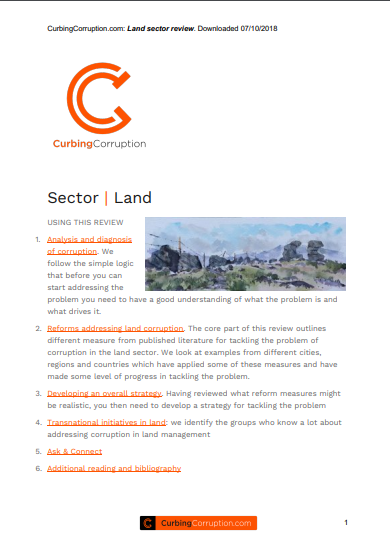Land Sector Review
Land is consistently ranked among the sectors where people most often report having to pay bribes to access services, according to Transparency International’s Global Corruption Barometer. The Land Portal has summarised the latest available (dated 2013) global data here, which shows that the incidence of bribes paid for land services can be over 50% in countries such as Cambodia, India and Pakistan.



